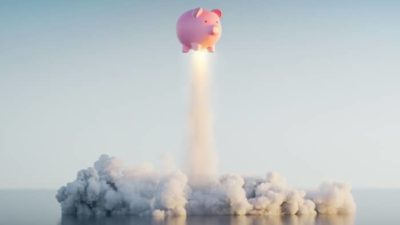This article was originally published on Fool.com. All figures quoted in US dollars unless otherwise stated.
If you invested $10,000 in Tesla's (NASDAQ: TSLA) public debut back in June of 2010, you'd be sitting on a cool $1.94 million today. By comparison, the same amount invested in an index fund would have yielded a far more modest total return on capital ranging from $30,000 to $42,000, depending on which benchmark the fund was designed to track.
As a result of this jaw-dropping performance over the past 12 years, Tesla has earned an exceptionally loyal following from its shareholders. Because of this, the electric car and renewable energy giant has been one of the few tech-heavy outfits to generate positive returns for investors over the past 12 months.
Thanks to a flurry of headwinds such as rising interest rates, soaring inflation, supply chain woes, and geopolitical turmoil, tech giants Amazon.com, Inc.(NASDAQ: AMZN) and Microsoft Corporation (NASDAQ: MSFT) have lost 27.9% and 17.7% of their value, respectively, since September of 2021. Meanwhile, Tesla, which is largely subject to these exact same macroeconomic pressures, has netted shareholders a respectable 22% gain over this same period.
Can Tesla's stock continue to defy the broader market? Let's take a look at both sides of the argument to find out.
Tesla's value proposition: A Wall Street battleground
If you browse the surfeit of analyst research reports on Tesla stock, you'll definitely walk away with the impression that Wall Street is divided on the company's outlook.
On the bear side of the ledger, for instance, Tesla's fair-value estimate of $255 per share, per Morningstar, reflects the uncertainty inherent in the growth prospects of the electric vehicle market at large, along with the company's continued ability to maintain an elite brand cachet in a space that is widely expected to attract multiple new competitors in the years to come. This lowball valuation also doesn't assign much in the way of net present value for Tesla's renewable energy business or its growing aspirations in the field of robotics.
On the bull side, Tesla's 12-month forward-looking price target of $374 per share, from the research firm Argus, is steeped in the idea that the company will likely continue to dominate the emerging electric vehicle market for the remainder of the decade, successfully diversifying into other high-growth areas, such as robotics, along the way.
This belief is founded on the fact that Tesla currently plows an eye-catching 19% of gross profits into research and development, which is one of the highest spends on R&D (as a function of gross profits) within its peer group. bulls, in short, appear confident in Tesla's ability to maintain a competitive edge, thanks to this elevated level of investment in R&D.
Is this growth stock immune to recessionary pressures?
Now, Tesla's stock hasn't completely escaped the ravages of the 2022 bear market. The company's shares are currently down by a little over 12% year to date. That said, Tesla stock has performed admirably in 2022 overall.
What's important to understand is that this unrelenting bear market has taken a hatchet to nearly every tech-oriented stock with a premium valuation in 2022. Tesla's shares, though, have largely evaded this marketwide pullback across this particular asset class -- despite the company's shares trading at over 51 times 2023 estimated earnings right now. Underscoring this point, the electric vehicle giant's shares have outperformed approximately two-thirds of its large-cap peers in consumer cyclicals this year.
What's the secret to Tesla's resilience in the middle of a raging bear market? Put simply, Tesla's loyal shareholder base, enormous long-term opportunities in electric vehicles, renewable sources of energy, and robotics aspirations have kept its stock safe from the worst of the 2022 bear market.
That's an intriguing sign for bulls. The long and short of it is that even this dour market isn't buying the bear view that Tesla's competitive edge will gradually evaporate or that it will fail to innovate in ancillary markets such as renewable energy and/or robotics.
So if you're looking for a stock that can shrug off the market's laser-like focus on a possible recession, Tesla ought to be at the top of your list.
This article was originally published on Fool.com. All figures quoted in US dollars unless otherwise stated.









